Research by Dave Hedlund
Edited by OC Staff
Over the summer we’ll be visiting various members of the Canadian orchestral community – organizations and individuals who contribute to a thriving arts scene in Canada. If you want to write for us about your experience as an artist or arts administrator during the pandemic, get in touch with Katherine Carleton at [email protected].
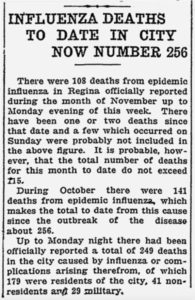
While we are certainly living in unusual and challenging times, Covid-19 isn’t the first global pandemic that has struck our communities and shaken the arts industry. The Canadian orchestral landscape was much younger when the Spanish Flu of 1918 hit the country, just months after the end of World War I. Much like what we’re seeing right now, many industries, including the arts, were forced to close their doors to stop the spread of the virus.
With a founding date of 1908, the Regina Symphony Orchestra is one of a small handful of Canadian orchestras to have seen both the Spanish Flu and Covid-19. We were delighted to learn that the RSO’s historian Dave Hedlund has delved into their archives and the RSO is having a book written on the history of the RSO, including a chapter on the busy time period that saw World War I and the Spanish Flu. We’re grateful that Dave was willing to let us publish an overview of the RSO’s return to activity after the Spanish Flu, just over 100 years ago.
By the time the Great War officially ended in November 1918, 1200 Regina servicemen had died in the fighting. As the war was coming to a close and troops were returning to Canada, an influenza epidemic broke out across the country. In response, by October 1918, Regina stores, schools, theatres and churches were closed. Public meetings were prohibited. About 2000 of Regina’s 30,000 people were infected, according to reports in late October. By late November 2018, over 250 people in Regina had died from influenza.
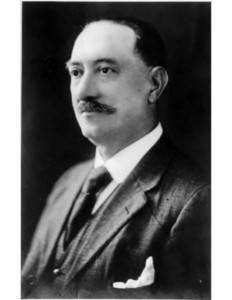
An item in the Leader on Jan. 7, 1919, reported that the orchestral society was resuming rehearsals. The society “has made an occasional appearance in public.,” the paper reported, but “it has been somewhat difficult to keep the society up to desired strength during the years of war, but some additional members are now in sight and Mr. Laubach anticipates a good winter’s work.”Despite the devastation, though, by December of that year, the RSO’s founding conductor, Frank Laubach, still believed that the city needed music more than ever. Maestro Laubach promoted an opera half week for January. And the resumption of Regina Orchestral Society rehearsals was also announced.
Over the flu’s two-year reign of terror, some 50,000 Canadians succumbed, most of them young adults, compounding the effects of the war, in which some 60,000 Canadians died, mostly young men. The orchestral society, described by the Leader as “the oldest musical institution in the city,” presented a full season in 1919-20, starting on September 16th, 1919 with a performance of Schubert’s Unfinished Symphony.
And the band played on.
Learn more about the Regina Symphony Orchestra on their website or in this wonderful feature the CBC ran last year on the RSO’s 110th anniversary.

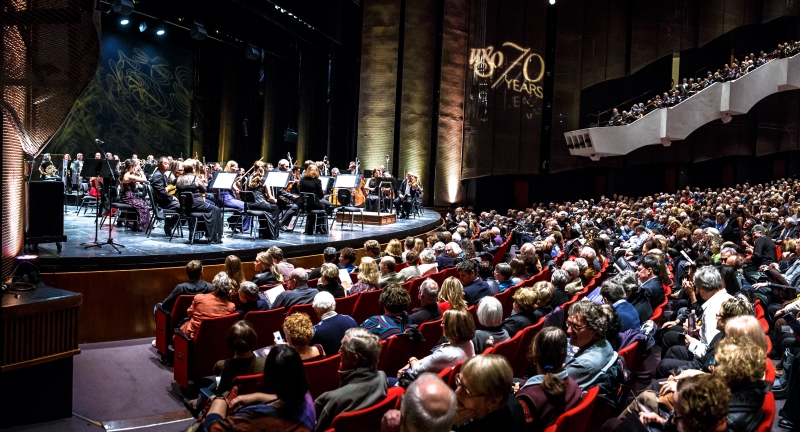
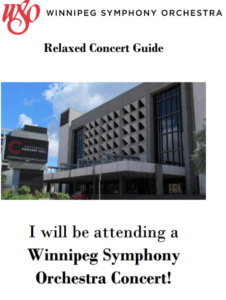 Preparing for this concert was more complex than usual. The team at the WSO created two new documents to help prepare people attending: a pre-visit guide, and a concert experience guide. These documents were created by and in consultation with individuals who were close to the WSO, and have worked with or been a caregiver for someone on the spectrum. Through the pre-visit guide, potential audience members are walked through what to expect from transportation to the venue until arrival at one’s seat. The concert experience guide prepares people for what to expect during the concert itself, and lists some of the amenities available to them, including fidget objects, colouring activities and reserved spaces for a more or less intense experience (at the very front or back of the hall).
Preparing for this concert was more complex than usual. The team at the WSO created two new documents to help prepare people attending: a pre-visit guide, and a concert experience guide. These documents were created by and in consultation with individuals who were close to the WSO, and have worked with or been a caregiver for someone on the spectrum. Through the pre-visit guide, potential audience members are walked through what to expect from transportation to the venue until arrival at one’s seat. The concert experience guide prepares people for what to expect during the concert itself, and lists some of the amenities available to them, including fidget objects, colouring activities and reserved spaces for a more or less intense experience (at the very front or back of the hall).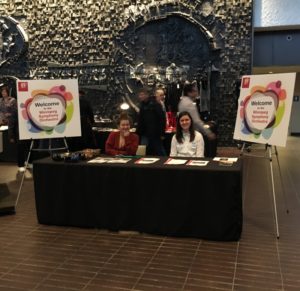 “As soon as the doors opened, there was a different feeling in the air,” Johnson said. For the approximately 600 audience members, there was a real excitement that this concert was bringing new people to the symphony who may have experienced barriers in accessing this music before.
“As soon as the doors opened, there was a different feeling in the air,” Johnson said. For the approximately 600 audience members, there was a real excitement that this concert was bringing new people to the symphony who may have experienced barriers in accessing this music before.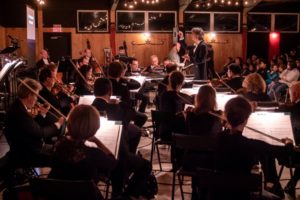
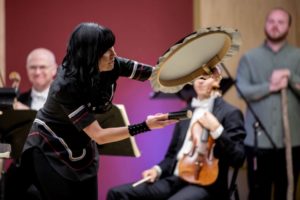
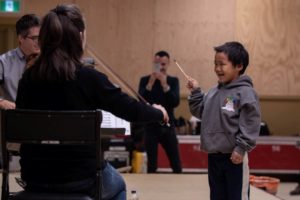
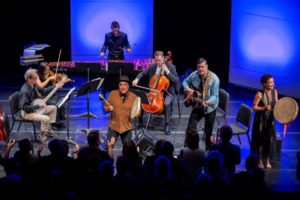
 Orchestras Canada’s member orchestras range in size from fully professional ensembles, to smaller regional orchestras, to community groups working with enthusiastic amateur musicians. The Music4Life String Orchestra is one such community group. Based in Ajax, Ontario. Music4Life’s orchestra currently has over 30 string musicians, including four professional section leads who act as mentors and teachers to the rest of the ensemble. The orchestra members range in age from 8 to 78 years old, making for an unusual but beneficial social and musical experience for all involved.
Orchestras Canada’s member orchestras range in size from fully professional ensembles, to smaller regional orchestras, to community groups working with enthusiastic amateur musicians. The Music4Life String Orchestra is one such community group. Based in Ajax, Ontario. Music4Life’s orchestra currently has over 30 string musicians, including four professional section leads who act as mentors and teachers to the rest of the ensemble. The orchestra members range in age from 8 to 78 years old, making for an unusual but beneficial social and musical experience for all involved.
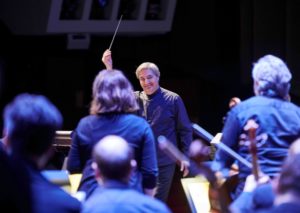

 Musicians from the Windsor Symphony Orchestra visited community and health venues between October 1st and 10th as part of their Music for Health outreach program. Last year this program included 21 performances to more than 1200 seniors in and around Windsor.
Musicians from the Windsor Symphony Orchestra visited community and health venues between October 1st and 10th as part of their Music for Health outreach program. Last year this program included 21 performances to more than 1200 seniors in and around Windsor.
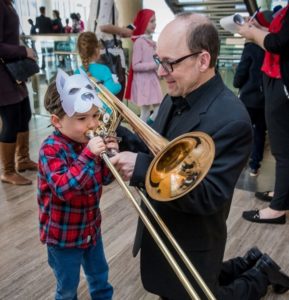 Since its beginnings, the Orchestre symphonique de Montréal has kept education at the centre of its mission, and has continued to develop new initiatives for engaging young people in classical music. One can think back to the Youth Concerts that were started in 1935 by Wilfrid Pelletier, or to more recent examples such as
Since its beginnings, the Orchestre symphonique de Montréal has kept education at the centre of its mission, and has continued to develop new initiatives for engaging young people in classical music. One can think back to the Youth Concerts that were started in 1935 by Wilfrid Pelletier, or to more recent examples such as 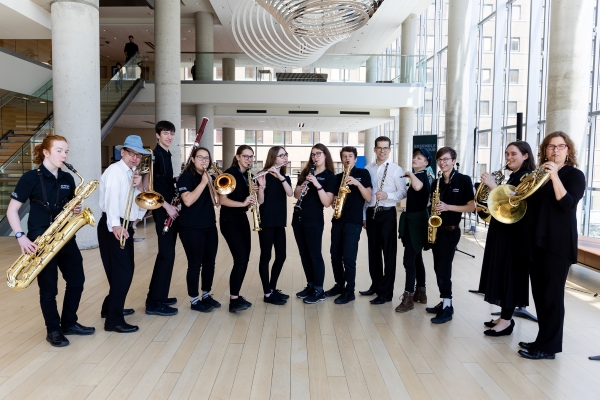
 Since 1940 the OSM has presented the OSM Competition, Canada’s most prestigious performance competition for young musicians, offering prizes worth more than $100,000 in value to its winners, as well as significant visibility on the international stage. The OSM invites the public to discover 17 violinists and cellists aged between 15 and 25 during the semi-finals and final rounds, which will take place from November 27th to 30th in Montreal. All competition events are
Since 1940 the OSM has presented the OSM Competition, Canada’s most prestigious performance competition for young musicians, offering prizes worth more than $100,000 in value to its winners, as well as significant visibility on the international stage. The OSM invites the public to discover 17 violinists and cellists aged between 15 and 25 during the semi-finals and final rounds, which will take place from November 27th to 30th in Montreal. All competition events are 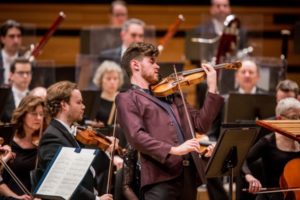 Competition winners receive enormous support from the OSM. In addition to cash prizes and scholarships, many have developed a special relationship with the orchestra; the OSM has offered many competition winners the opportunity to perform as soloists, recitalists or chamber musicians with OSM musicians. Kent Nagano also conducts an orchestra of past competition winners during the summer Classical Spree festival. In addition, the OSM fosters partnerships between competition winners and its own artistic partners and international guest artists: an important step for early-career artists.
Competition winners receive enormous support from the OSM. In addition to cash prizes and scholarships, many have developed a special relationship with the orchestra; the OSM has offered many competition winners the opportunity to perform as soloists, recitalists or chamber musicians with OSM musicians. Kent Nagano also conducts an orchestra of past competition winners during the summer Classical Spree festival. In addition, the OSM fosters partnerships between competition winners and its own artistic partners and international guest artists: an important step for early-career artists.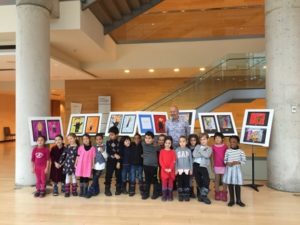 The OM at School provides an opportunity for meaningful encounters between students and musicians, in the form of workshops held in schools, and by welcoming school groups to rehearsals and concerts. Last December, the art works of some 15 kindergarten students at École Notre-Dame-des-Neiges embellished the foyer of the Maison symphonique. The students, who attended the dress rehearsal, were able to see their works on display, and to present one as a gift to conductor Yannick Nézet-Séguin. In preparation for the outing, the students had learned about Schumann’s Piano Concerto, one of the works on the program, and were paid a visit by the OM’s artistic partner, conductor Nicolas Ellis, who answered their questions.
The OM at School provides an opportunity for meaningful encounters between students and musicians, in the form of workshops held in schools, and by welcoming school groups to rehearsals and concerts. Last December, the art works of some 15 kindergarten students at École Notre-Dame-des-Neiges embellished the foyer of the Maison symphonique. The students, who attended the dress rehearsal, were able to see their works on display, and to present one as a gift to conductor Yannick Nézet-Séguin. In preparation for the outing, the students had learned about Schumann’s Piano Concerto, one of the works on the program, and were paid a visit by the OM’s artistic partner, conductor Nicolas Ellis, who answered their questions.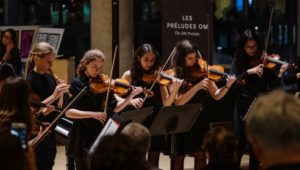 Playing it Forward aims to provide a forum for young musicians and to support their development through mentoring, master classes and other activities. The
Playing it Forward aims to provide a forum for young musicians and to support their development through mentoring, master classes and other activities. The 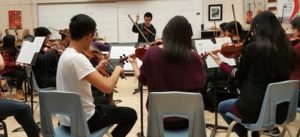 Esprit Orchestra
Esprit Orchestra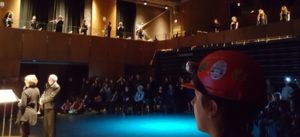 Ontario Resonance ran from September to November of 2017, culminating in seven performances in schools and venues across the GTA, with student compositions performed by a combination of student performers and professional Esprit musicians. The mentors’ works were showcased in an all-pro finale concert at Trinity St. Paul’s Centre on November 23, 2017 – a high energy ending to the program with a full audience in attendance.
Ontario Resonance ran from September to November of 2017, culminating in seven performances in schools and venues across the GTA, with student compositions performed by a combination of student performers and professional Esprit musicians. The mentors’ works were showcased in an all-pro finale concert at Trinity St. Paul’s Centre on November 23, 2017 – a high energy ending to the program with a full audience in attendance.